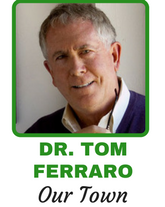The compelling presence and power of artificial intelligence produces a number of serious questions such as job loss and its addictive nature, but the primary question will be whether Artificial Intelligence represents the next step in evolution. That may sound like a stretch to anyone not keeping up with the information technology literature, but according to inventor Ray Kurzweil of MIT, AI will very soon outreach humans in all measures of intelligence and is now self-learning at an unfathomable rate.
Last week’s “60 Mintues” featured BARD, the newest form of AI and BARD’s instantaneous ability to write heart-felt, soul-wrenching poetry that had a hardened TV journalist in tears and in awe. And so if AI is to be the next step in evolution, let us attempt to define what it means to be human while we are still in charge of things.
We can use Freudian psychology as a method of differentiating the human from the cyborg. You know Freud. He was the guy that kept talking about sex, sex, sex. Cigars, skyscrapers, and baseball bats represent penises. Pocketbooks, shoes and anything else slightly concave represent vaginas. Nothing but sex, sex, sex.
The reason that Freud is considered by many to be the greatest thinker of the last 200 years is because he was smart enough to see that human nature consists of having animal instincts like sex and aggression but as members of a civilization that calls for constant control of these baser instincts. Religion, laws and mores all encourage us to control our animal nature. Being part animal and part civilized human produces considerable frustration, guilt and depression.
To give you an idea of the insistent power of sexuality let me discuss one of the great pieces of modern literature, Tolstoy’s “Anna Karenina.” I got a chance to see this Tolstoy ballet at the Kennedy Center in Washington two weeks ago and so I was inspired to read this classic in Russian literature. The book and the ballet are largely about the hazards of sexual infidelity, a subject that most adults are loathe to mention. Anna Karenina struggled with sexual fidelity, as did Tolstoy, Madame Bovary, Henry Miller and more.
It took the courage of a Freud to actually speak the truth and say sex matters and is something that humans think about, are obsessed with, struggle with and seek out day in, day out, throughout their lives.
Although sex is a powerful instinct that is tough to manage, it is the one thing that makes us human. AI, cyborgs, and robots, despite all of their present and future intellective powers to know all things, will never have the privilege nor the torment of knowing what it feels like to fall in love or to feel sexual pleasure. This sets us apart from them.
George Lucas was the filmmaker that gave us all of those “Star Wars” movies but perhaps his best film was his first, made in 1971, called “THX 1138.” It was about the future where drugs were administered to produce compliance and where love and sex were strictly prohibited. It appears that George Lucas was worried about our present-day dilemma with AI, 50 years before the rest of us.
In Tolstoy’s “Anna Karenina” all of the central characters suffer with sexual impulses, sexual infidelities and guilt and the book is so well loved because it speaks the truth. As Jesus Christ said, “The truth shall set you free.” The truth is that sex and love are primary human passions that offer us the heights of heaven and the depths of hell. This is our lot in life.
There may be some solace in knowing that although sex and love produce conflict and confusion, at least this sets us apart from cyborgs, replicants and robots that are made of wiring and metal.

